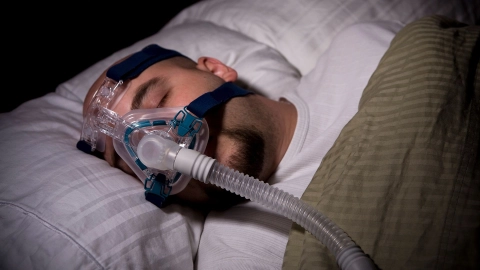ICD-Code G47.31: Obstructive sleep apnea
You get too little air when you sleep.
There are different reasons why we sleep. The reasons have not been fully understood. So far we know, for example, that sleep helps the body to recover. Sleep also develops the memory, and it brings feelings into equilibrium. Sleep has a particular sequence. There are deep sleep phases and lighter sleep phases. These phases alternate during sleep. The sleep-wake cycle is controlled by different influences such as messenger substances in the body. These messenger substances can be influenced by activity and light.
If we are to be able to breathe, the air must get from our nose or mouth into our lungs. In your case, the airway is narrowing while you sleep. The airways often narrow due to obesity. Too much soft tissue around the neck then presses down on the airway in the throat. So the airway narrows. The person then often snores. You are getting too little air because of the narrowed airway.
When someone gets too little air, the blood’s oxygen content falls. The brain then gets too little oxygen. The person then wakes up briefly and then falls asleep again. They do not usually notice this waking. However, their sleep is interrupted. With this condition, this happens frequently during the night. This makes their sleep less restful.
As a result, you may have various symptoms. They may be very tired during the day, or find it hard to concentrate. Sleep problems can contribute to various disorders.
Additional indicator
On medical documents, the ICD code is often appended by letters that indicate the diagnostic certainty or the affected side of the body.
- G: Confirmed diagnosis
- V: Tentative diagnosis
- Z: Condition after
- A: Excluded diagnosis
- L: Left
- R: Right
- B: Both sides
Further information
Source
Provided by the non-profit organization “Was hab’ ich?” gemeinnützige GmbH on behalf of the Federal Ministry of Health (BMG).

